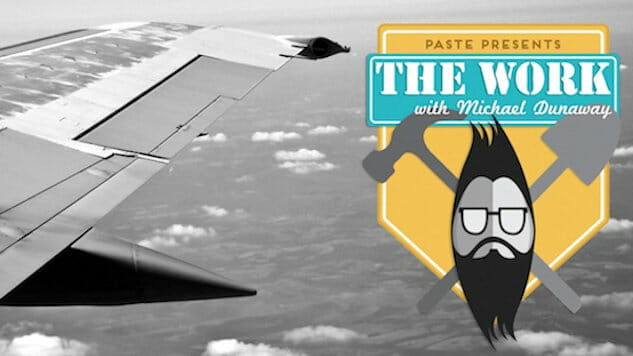Walton Goggins, Casey Affleck & Anna Pniowsky on The Work Podcast

Hosted by Paste editor-at-large Michael Dunaway, The Work features in-depth conversations with some of the most fascinating creative minds in the industry, including Spike Lee, Kristen Bell, Nicolas Cage, Kevin Smith and Britt Marling.
In this episode, Academy Award winner Walton Goggins talks about how his role in The Apostle and Robert Duvall’s impact on him prepared him to play his current leading role in Them That Follow, in theaters now. “This has given me an opportunity to close this circle that started 24 years ago,” Goggins says. “I was 24 years old when I did The Apostle, and I could not have done this without doing that movie. Watching Bobby. What that movie meant to me and what he means to me. Between him and Sam Rockwell, that’s my church. My character’s name in that story was Sammy. And this is what Sammy would have become. He would have become Lemuel. This is the continuation of that story. I haven’t said this to anyone else and I can say it now, man: I called Bobby, who has always been a mentor to me, but I called him when this was done and when I saw it for the first time, and I said, ‘Man, the only reason that I was able to do this is because of you. And the only reason I see this world or any world in this way is because of what you gave me.’ And I sent it to him and I showed it to him and, and he was fucking blown away by it, man. To have that, I don’t need anything else.”
Then Academy Award winner Casey Affleck and co-star Anna Pniowsky join Dunaway to discuss Affleck’s directorial debut Light of My Life, in theaters, digital, and on demand now. “I knew I wanted the story to have a lot of little stories in it,” Affleck says. “But I didn’t write that story to be at the top of the movie. It was sort of buried like at the top of the second act. And then I learned once we’d sort of put the cut together, the movie was asking people to sort of stop paying attention to what they started paying attention to after the inciting incident—you cannot take them down some path. It’s telling you, look here, this is what the movie’s is going to be about. And then put the brakes on and have them watch your 15-minute scene about something else. So it was the only place that you could really get away with it, at the top. And then I learned that it wasn’t that much to ask of an audience because you know the way that a lot of movies will start with something completely unrelated to the plot, you know what I mean? Like especially like in the early ’90s, every Lethal Weapon movie opens with some incident, some action sequence, that has nothing to do with the rest. And then the movie would start. So this is kind of our version of that. This is like a little story that lets you know about who these people are. It seems like it’s an open-and-closed episode in the movie, but then it’s revisited much later on. Also, I just sort of felt like, you know what this is, if people make it through the first 12 minutes, then they know what they’re in for and they’re just going to make it. They’re gonna settle in and watch the movie. It was kind of putting our cards on the table and, and saying, you know, this is what we got.”
Subscribe to The Work on iTunes or Google Play or listen below.







































